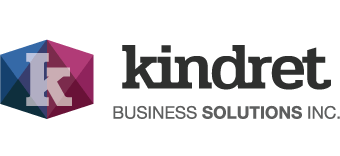High Score! Or Not? Making Sense Of Credit Scores

You’ve worked hard, have a good credit score, and definitely feel like you’re going to be approved for that loan, but for some reason it’s denied. Why? Doesn’t a higher credit score equal better credit? Yes and no. Kelowna accountants will tell you the answer is somewhat more complicated than that; people don’t have as much control over their credit scores as they think.
Understand, moving forward, the credit reporting system in Canada is designed for the banks to help the banks. Credit info is looked at as a product, and while that sounds a bit like a conspiracy statement, it’s actually just an unfortunate reality of the system in place. This is mainly because credit info about you is actually sold by credit bureaus like Equifax to banks and other lenders. This is an important point because it factors into why credit scores are so complex. There are numerous businesses in play, and info is traded often. With that in mind, let’s dive into an overview to improve your “high score”.
How You See Your Credit Score
One additional complicating factor in all of this is how the bank views your credit score, or actually doesn’t. See, the bank doesn’t actually get the full picture, they likely purchased a version of your credit report that had certain factors about it that made it appealing to buy from companies like Equifax or TransUnion. This is because certain aspects in the report, like credit borrowed, may be emphasized, while other factors may be deemphasized. So “gaming” your credit score isn’t really something you have a huge influence over.
So what are some of the main components of a credit score? To start, there’s the three-digit score calculated based on every element. It’s also important to note these building blocks of your credit score aren’t all evenly weighted in your final score calculation. Some of the biggest ones are credit repayment history and credit utilization. Additional factors include the length of your credit history, new credit, and the mix of the type of credit you have. However, your personal and professional life are also part of what makes up your credit score as well. How frequently you move locations, and if you’re often changing jobs often will also impact it, particularly the latter as it indicates a potential threat to any credit repayment you may have.
Making Use Of Credit
Improving your credit score can’t be done passively: you need to actively be using your credit cards in order to get better credit. If you have multiple sources of credit this also helps improve your score; it’s often advised to maintain a balance of 30% of your credit limit most of the time. This seems counter-intuitive since you’d think it would be better to pay off your credit as soon as you pay for something, but weirdly enough that’s not the case. This is because banks use that balance to make other transactions in their systems. Interestingly, while some credit cards require you make “X” dollars of income to qualify for them, your credit score isn’t actually affected by how much you make.
If you have multiple sources of credit, this can also improve your score (like having a mortgage) since banks can make use of that debt.
Why It’s A Bad Idea To Chase After A High Score
Yes, improving your credit score can help you with certain purchases like buying a home and is never a bad thing to have, but really you can be so much worse off financially by doing so. Maintaining a balance, for example, isn’t always the best move. You need to make sure you keep track of when you need to pay that balance off or you’ll start accruing interest on what you owe, potentially ending up worse off. You can improve your credit history by taking out a larger loan, but you’ll still need to be financially stable enough to be able to pay that off as well.
Credit scores aren’t the end-all-be-all; while having a good score can help you with key purchases ultimately you should be making financial decisions that make sense to your current situation.
Need assistance with finding out how to improve your score for your business or managing your professional finances? Kindret Business Solutions can help you get your books in order and your business financially back on track.









